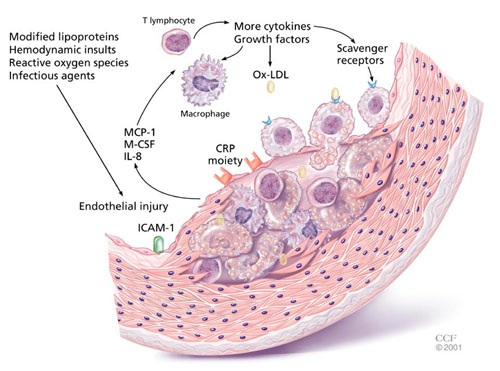C-Reactive Protein - what is, high levels and lowering

C-Reactive Protein is a substance the body’s tissues release when they become inflamed. Some health experts believe elevated levels of c-reactive protein in the BLOOD may indicate the presence of ATHEROSCLEROSIS. Though cardiologists and researchers have known for some time that inflammatory processes accompany atherosclerosis, studies in the 1990s and early 2000s began to suggest that INFLAMMATION, perhaps due to low-grade INFECTION, might be a contributing cause of atherosclerosis. Elevated blood levels of c-reactive protein in people who have had HEART ATTACKS portend significant increase in risk for subsequent HEART attacks. However, cardiologists are not certain how important elevated c-reactive protein levels are in people who do not appear to have CARDIOVASCULAR DISEASE (CVD). Chronic inflammatory conditions may also elevate c-reactive protein. Cardiologists generally recommend considering a person’s level of c-reactive protein in context with other RISK FACTORS FOR CARDIOVASCULAR DISEASE, and base intervention decisions on the overall cardiovascular risk picture.
See also COENZYME Q10; HEART ATTACK; LIFESTYLE AND CARDIOVASCULAR HEALTH; VITAMINS AND HEALTH.